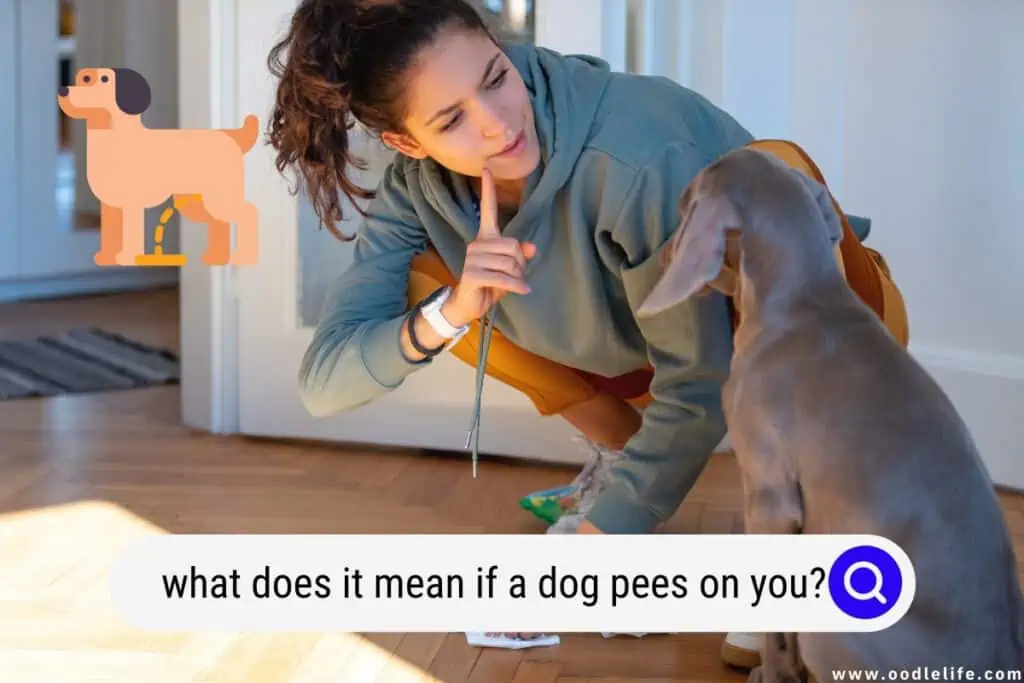Why Does My Dog Pee When I Come Home?
Do you have a dog who greets you with a puddle of pee? If so, you may wonder, why does my dog pee when I come home? While the exact cause can vary from dog to dog, there’re some possible explanations for this behavior.
Understanding the potential causes can help you take the necessary steps to help your dog stop this behavior.

Keep reading to learn why your dog may be peeing when you return home.
They’re Happy To See You
One common reason your dog will pee upon your return is that they’re thrilled to see you. Dogs are social animals and can become quite attached to their owners. They love spending time with them and are excited whenever they reunite.
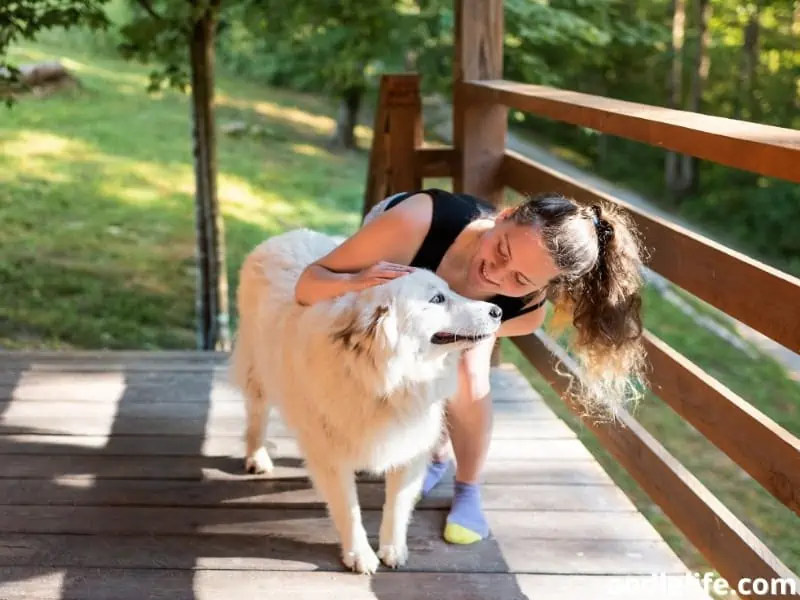
When they see you come home, they might express their joy by peeing right near you.
Submissive Urination
If your dog pees after seeing you, it may indicate that they respect you as the pack leader. Nevertheless, canines with a history of mistreatment are also likely to suffer from this condition. Adopted dogs often act submissively because they’re yet to learn the new home’s routines.
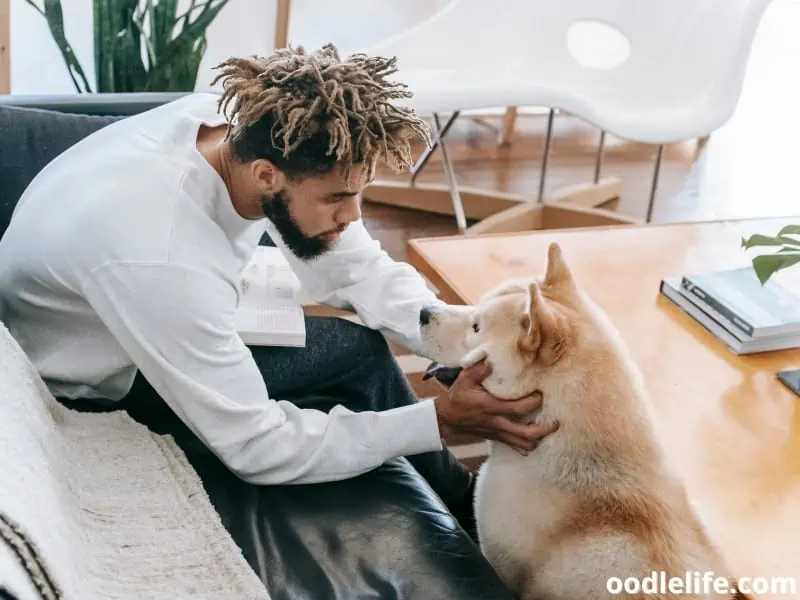
You can anticipate a submissive urination problem occurring more frequently than when you get home. You often provoke the peeing by maintaining direct eye contact, shouting, or trying to pick your dog up. The behavior is prevalent in both male and female dogs.
Separation Anxiety
Dogs frequently struggle with separation anxiety, which may be challenging to manage. The symptoms present themselves uniquely in each dog. Some can become destructive, while others exhibit different anxious behavior.
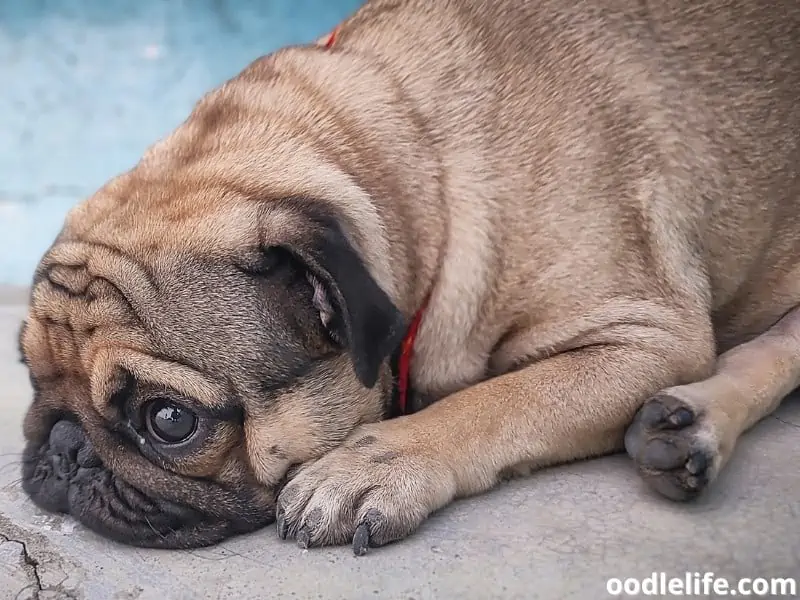
If your dog suffers from separation anxiety, it might start urinating as soon as they hear you open the door.
They’re Marking Their Territory
When your dog pees when you come home, it could be because they’re marking their territory. Dogs have a strong instinct to mark their territory, including their home and the people living there. If they see you as their property, they may also need to mark you.
Premature Relief
Once you return home, your dog understands it is the perfect restroom time. A mishap can happen before leaving the house, particularly if they’ve been holding the pee for hours. That’s more prevalent in younger puppies who haven’t yet mastered controlling their bladders.
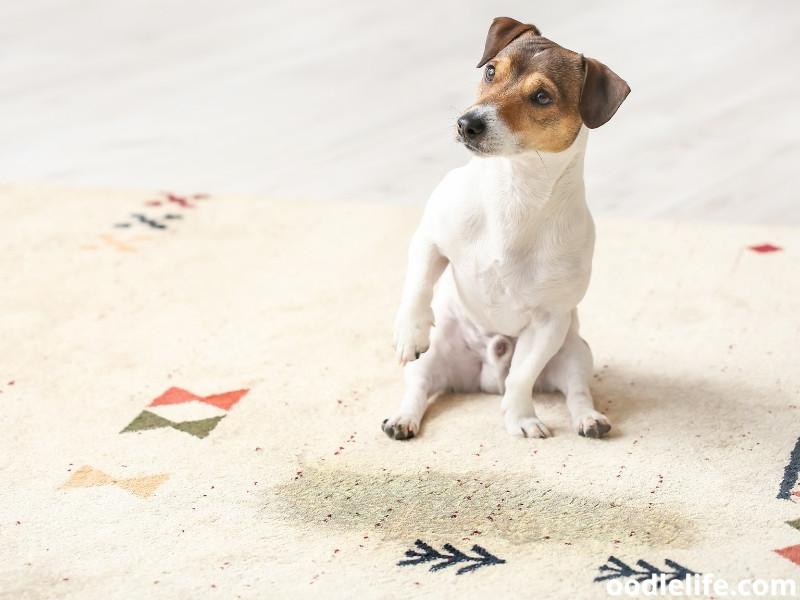
Premature relief doesn’t have any connection to fear or an instinctive response, and the volume of pee is much higher.
Your Dog Is Sick
When dogs act up, most owners focus on behavioral justifications for their conduct. However, a dog’s behavior may occasionally have a medical explanation. After ruling out all potential behavioral causes for urination, it’s time to make an appointment with the veterinarian.
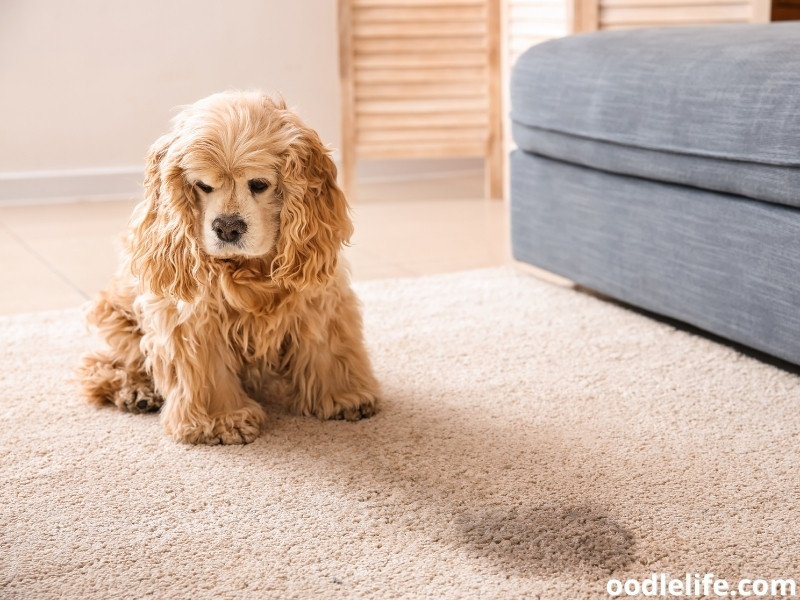
Some medical conditions that may cause your dog to urinate involuntarily when you come home include kidney disease, diabetes, urinary incontinence, and gastrointestinal upset.
What Should I Do if My Dog Pees When I Get Home?
Here are several tips if your dog is urinating when you come home.
Don’t Reciprocate Their Greetings
Try to keep your homecoming lowkey and resist the temptation to show your dog affection immediately. It would be best if you did not act too enthusiastic about seeing your canine despite your desire to do so.
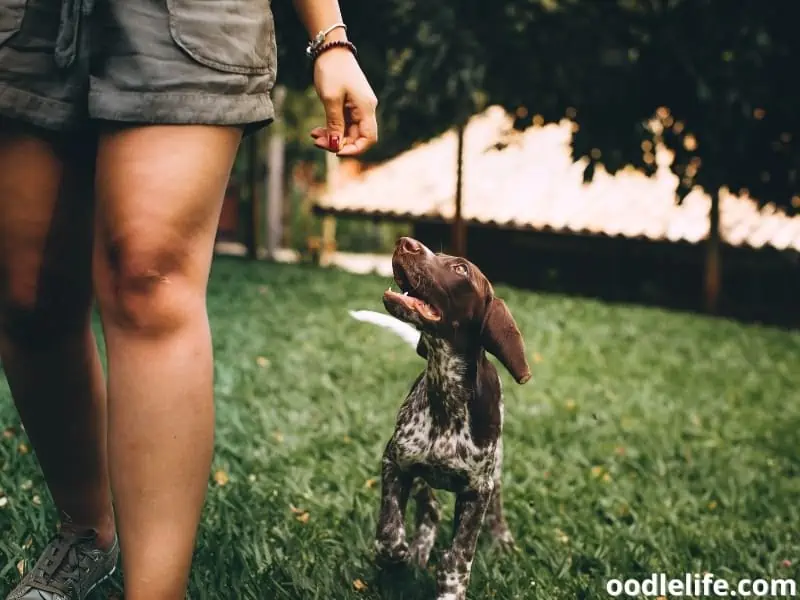
Don’t make a big deal of your arrival by jumping up and down and clapping your hands. Instead, acknowledge your dog calmly and settle down into a relaxed state so they can do the same.
Ensure you use low tones when you enter the door. If there’re too many loud noises to set your dog’s tail wagging, they’re more likely to mess up.
Some dogs, eager for human approval, may try to make eye contact with you. Avoid meeting their gaze directly, as they might misinterpret that as a green light and end up peeing.
Maintain a Calm Environment When You’re Not at Home
It won’t take long for your dog to become anxious if they’re alone in an unsettling atmosphere. Hearing frequent explosions, bangs, or other mysterious sounds can be frightening.
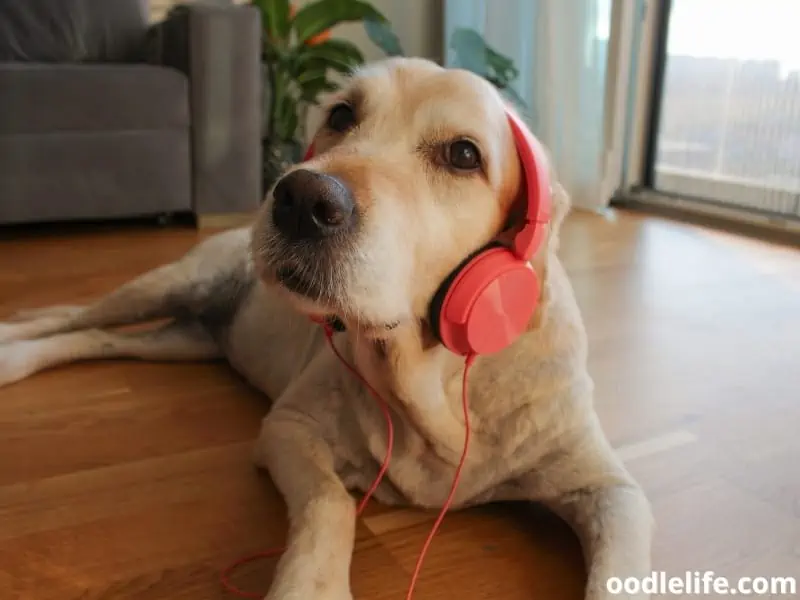
Play some soothing music, such as classical or lullabies. Research has shown that canine listeners have a strong preference for reggae.
Keep Them Busy
Your dog might be unable to sit in one place and stare out a window all day. They need plenty of mental and physical stimulation when you are not at home. That can help prevent boredom and reduce the likelihood of separation anxiety.
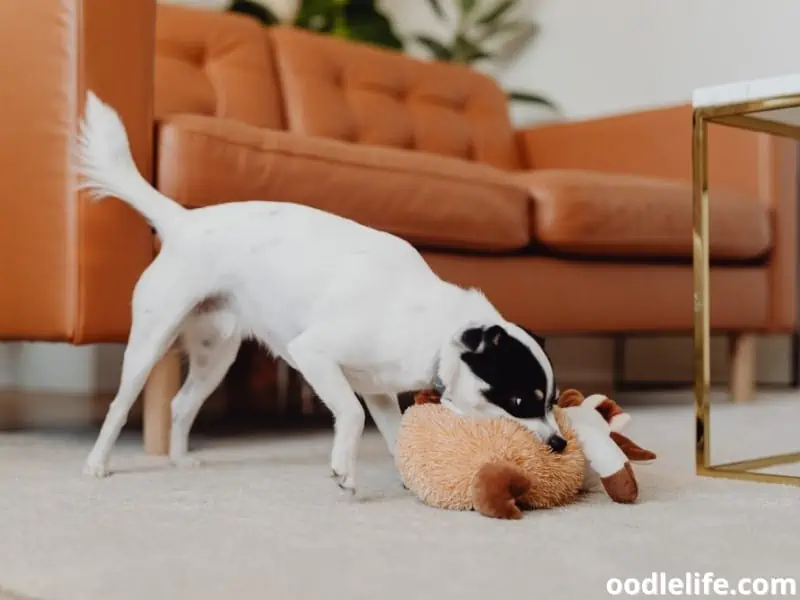
Therefore, provide your dog with many toys to ensure they stay occupied.
Avoid Scolding Them
If your dog continues to pee when you come home, try to remain calm and avoid scolding them. Scolding may worsen the situation and cause your dog to associate coming home with negative experiences.
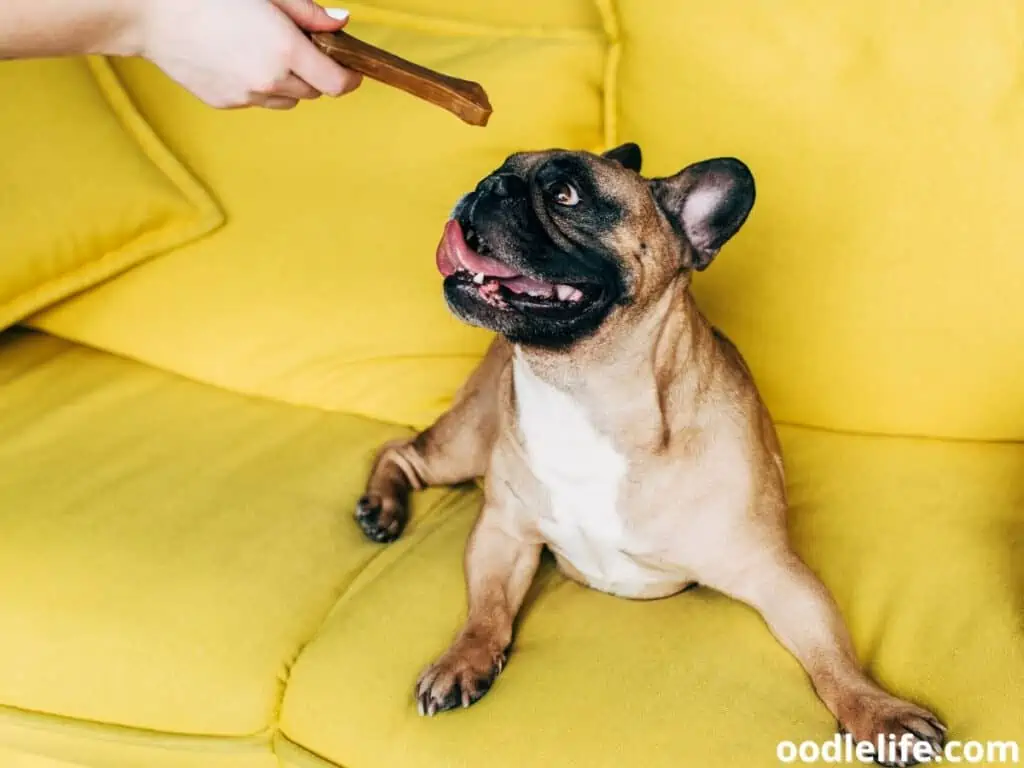
You can train them with positive reinforcement to associate coming home with something positive, not something that causes anxiety or excitement. It’s possible to redirect their behavior using treats and rewards when they exhibit the desired behavior.
Consider Taking Them to a Daycare
Even though it may not be feasible for every household’s financial situation, dog daycare is readily available. If your dog is destructive while you’re gone, you can tap into their need for social interaction by boarding them at a reputable facility.
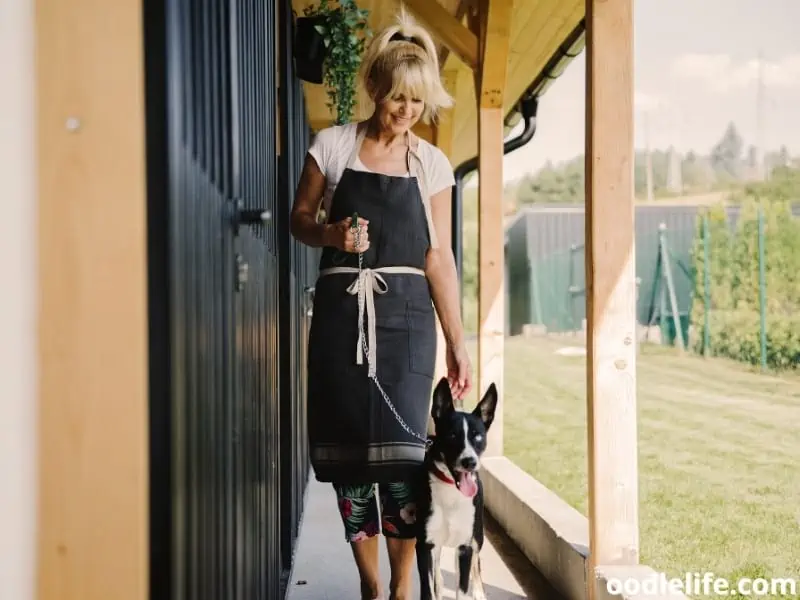
Many individuals also use pet sitting as a pastime, complementing the prevalence of dog daycares. You can hire someone reliable to take care of your dog while away.
Give Them Crate Training
A crate can provide a safe and secure space for your dog to relax when you are not at home. Be sure to introduce your dog to the crate gradually and make it a positive experience for them.
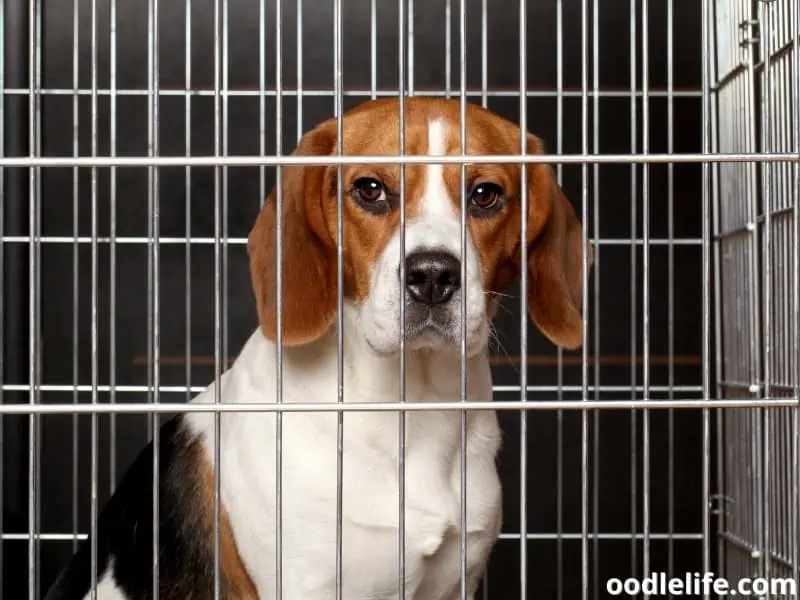
Permit Your Dog To Reach Maturity
Submissive urination is a common problem when canines are still very young. It’s something they can outgrow with time. Therefore, if your dog is less than two years old, you need to give them more time to grow up.
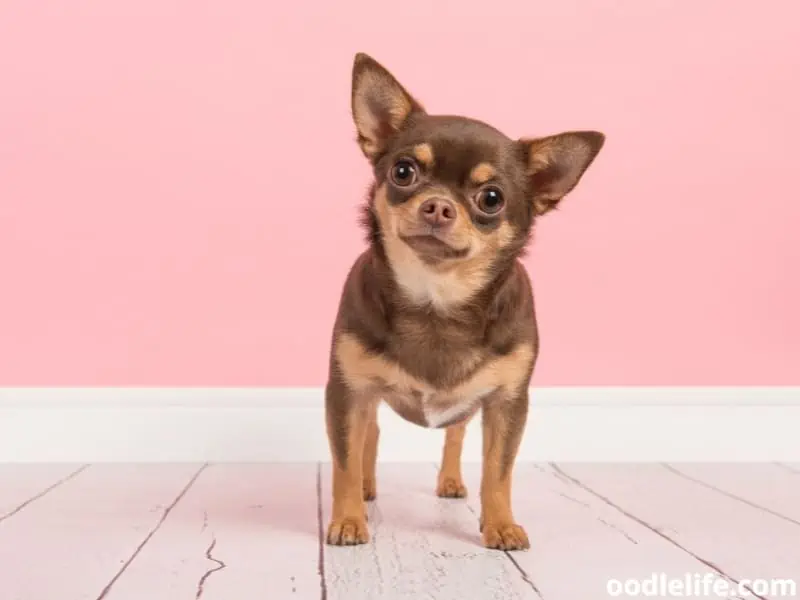
Maintain Peaceful Interactions
It’s a good idea to track the times your dog is more likely to urinate, such as when they’re feeling anxious or when a lot is happening at home. If you can tell when one of these trying times is approaching, try comforting your dog.
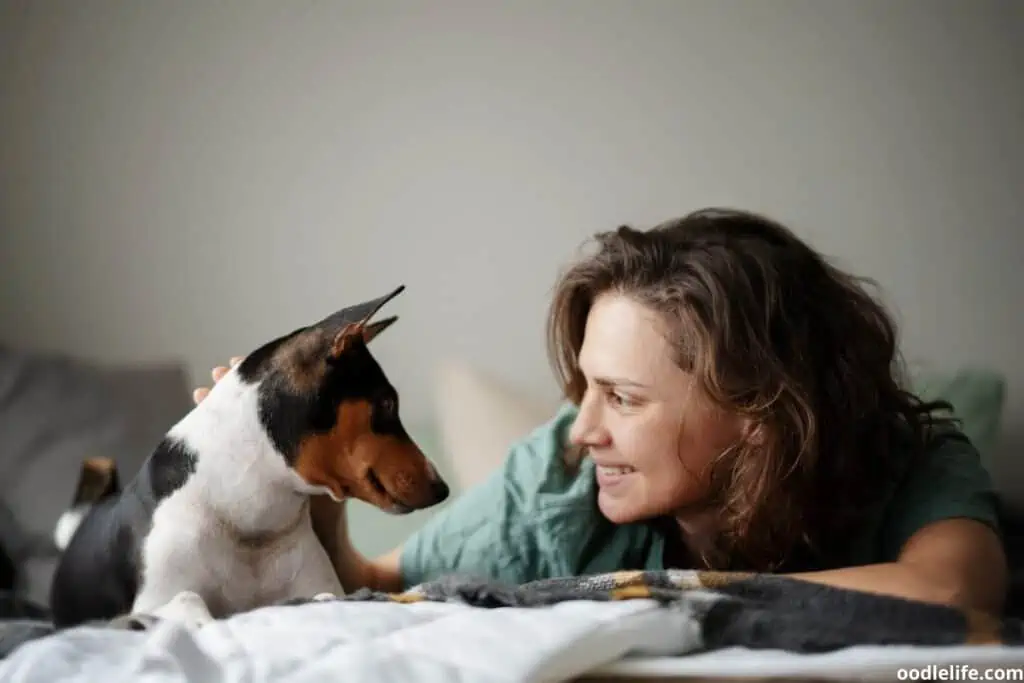
Fear is a common trigger for submissive urination. A possible side effect of harsh punishment towards fearful canines is aggression. Therefore, you should deal with the problem without resorting to punishment.
Take Them to a Vet
If your dog is suffering from a medical condition, it’s best to follow your veterinarian’s advice on treating it. Besides medication, the vet may propose the following:
- Therapies
- Behavioral modifications
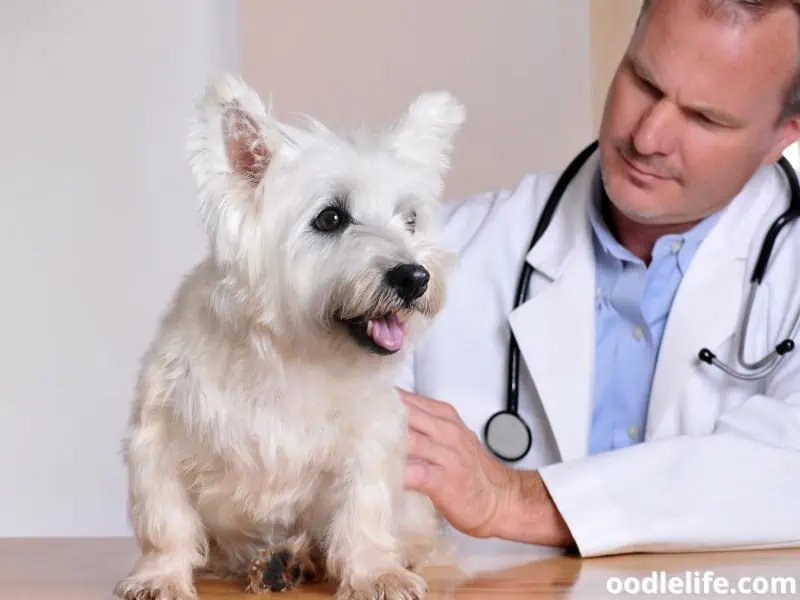
Remember that you can’t fix the behavior overnight, so it’ll require patience and consistency.
Final Thoughts
So, why does your dog pee when you come home? There could be many explanations for your dog’s peeing when you get home, including anxiety, a medical issue, or a lack of training. It’s important not to punish your dog as that will only make them fear you and will not solve the underlying problem.
The best action is to make lifestyle modifications and consult a veterinarian or a professional dog trainer to determine the cause and find a solution.
